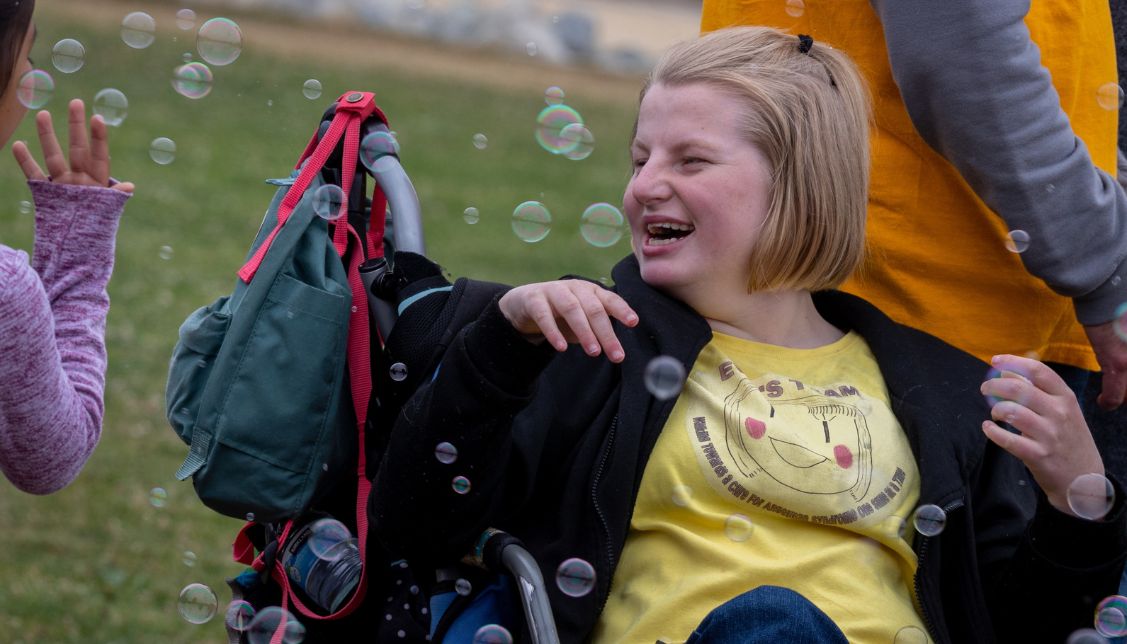 Add My Company
Add My Company
Understanding Angelman Syndrome

Angelman Syndrome (AS) is a rare neuro-genetic disorder affecting around 500,000 people worldwide. Its symptoms can often be mistaken for other conditions such as cerebral palsy, autism, and Prader-Willi syndrome, leading to frequent misdiagnosis.
The condition gained significant attention in 2024, when actor Colin Farrell spoke out about the lack of healthcare support for young adults with AS, highlighting the challenges faced by families as children with the condition grow older.
While there is currently no cure, researchers at the Angelman Syndrome Foundation (ASF) remain optimistic, believing there is a high chance of discovering one in the future.
What is Angelman Syndrome?
Angelman Syndrome occurs in one in 15,000 births worldwide and is caused by a disruption of the UBE3A gene, located on chromosome 15. In around 70% of cases, the maternal copy of this gene is missing. In up to 7% of cases, both copies of chromosome 15 are inherited from the father, while in 11% of cases, a pathogenic variant of the maternal UBE3A gene is present.
The syndrome was first identified in 1965 by Dr Harry Angelman, an English physician at Warrington General Hospital. He noted three unrelated children with similar symptoms, including intellectual disabilities, speech impairment, motor disorders, and a happy disposition.
Inspired by a painting of a laughing boy with a puppet by Giovanni Francesco, he initially referred to the condition as "Happy Puppet Syndrome" before it was later renamed Angelman Syndrome. The Angelman Syndrome Foundation was established in 1992 to raise awareness, support families, and fund research.
Symptoms of Angelman Syndrome
Children with Angelman Syndrome typically show developmental delays between six and 12 months. Early signs include a lack of crawling and babbling, although they may appear to be happy and laugh frequently.
Physical characteristics may include:
- A small head (microcephaly)
- A prominent jawline and deep-set eyes
- Widely spaced teeth
- An ever-smiling mouth
Developmental and motor challenges:
- Delayed milestones, such as sitting, walking, or talking
- Balance and coordination problems (ataxia)
- A stiff-legged, jerky walking style
- Hand-flapping movements
Behavioural traits:
- Hyperactivity and short attention span
- Difficulties feeding independently
- Delayed toilet training – around 20% of adults with AS struggle with daytime continence
Despite these challenges, individuals with AS are known for their cheerful and social personalities, often being described as having a "sunny disposition" and "lighting up a room".
How Does Angelman Syndrome Affect Sleep?
Sleep disturbances are a common issue, with up to 80% of individuals with AS experiencing insomnia, frequent night-time waking, and restlessness from the age of six months.
Sleep problems may include:
- Sleeping fewer than four hours per night
- Night terrors, sleepwalking, or confusion
- Involuntary laughter at night
- Sudden muscle contractions (myoclonic jerks), making falling asleep difficult
What Causes Sleep Issues in AS?
Research suggests low melatonin levels may contribute to disrupted sleep patterns. Melatonin replacement therapy has been found to help improve sleep quality.
Sleep deprivation not only affects the individual but can also take a toll on families and carers, leading to fatigue, anxiety, and cognitive difficulties.
Ways to improve sleep:
- Maintaining a consistent bedtime routine
- Limiting screen time before bed
- Encouraging outdoor activity during the day
- Reducing food and drink intake in the evening
- Creating a comfortable sleeping environment (e.g., sensory-friendly beds such as the Bearhugzzz SpaceSaver bed, designed for individuals with AS, autism, and epilepsy)
Diagnosing Angelman Syndrome
AS is not usually hereditary and is diagnosed through a combination of genetic testing and physical examination.
Common diagnostic tests include:
- Chromosomal microarray – to check for missing genetic material
- DNA methylation analysis – to screen for gene changes causing AS
- UBE3A gene sequencing – to detect mutations in the maternal UBE3A gene
Colin Farrell and Angelman Syndrome
Irish actor Colin Farrell has spoken openly about raising his 21-year-old son, James, who was diagnosed with Angelman Syndrome shortly after birth.
James displayed balance issues, feeding difficulties, and an unusual gait, prompting his parents to seek medical advice. The diagnosis was made public in 2007, and since then, Farrell has been a passionate advocate for raising awareness and improving support for individuals with AS.
In 2015, Farrell launched the Colin Farrell Foundation in honour of James, funding education, therapy, and support initiatives for people with intellectual disabilities. He has also highlighted the lack of support for young adults with AS, as many services available in childhood are withdrawn when individuals turn 21.
Angelman Syndrome Research
While there is currently no cure, research is advancing rapidly. Scientists at the Angelman Syndrome Foundation (ASF) are focusing on:
- Gene therapy – aiming to reactivate the UBE3A gene
- Seizure management strategies – as epilepsy affects 80% of individuals with AS
- Targeted sleep interventions – addressing sleep disturbances linked to the condition
To date, the ASF has invested over £12.9 million into global research projects, working towards improved treatments and ultimately, a cure.
Hope for the Future
With increasing awareness and ongoing scientific advancements, the future looks more promising than ever for individuals with Angelman Syndrome.
While challenges remain, early intervention, tailored therapies, and innovative research continue to improve quality of life for those with AS and their families.
For more information and support, visit the Angelman Syndrome Foundation or other advocacy organisations dedicated to raising awareness and advancing research.
For more information on Understanding Angelman Syndrome talk to Kinderkey Healthcare Ltd

